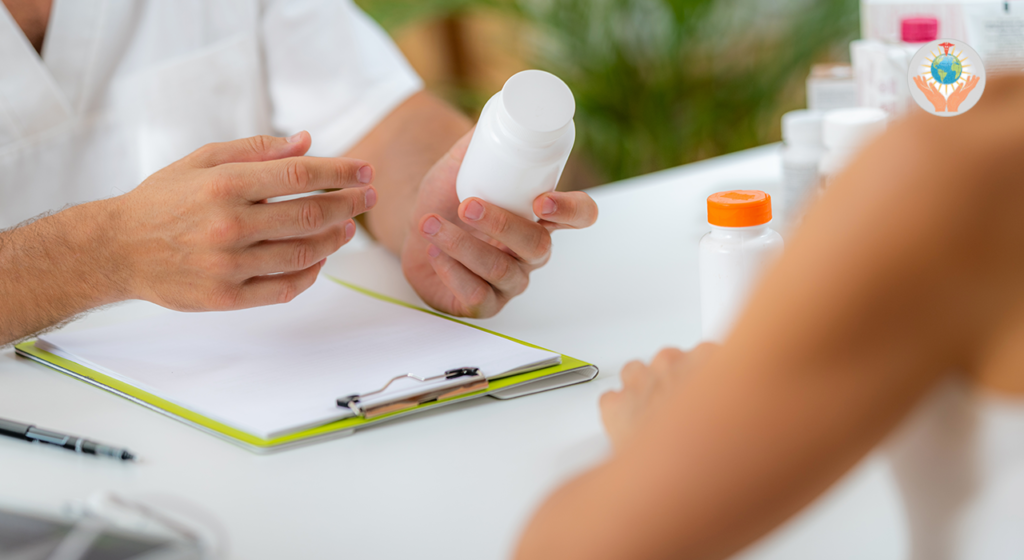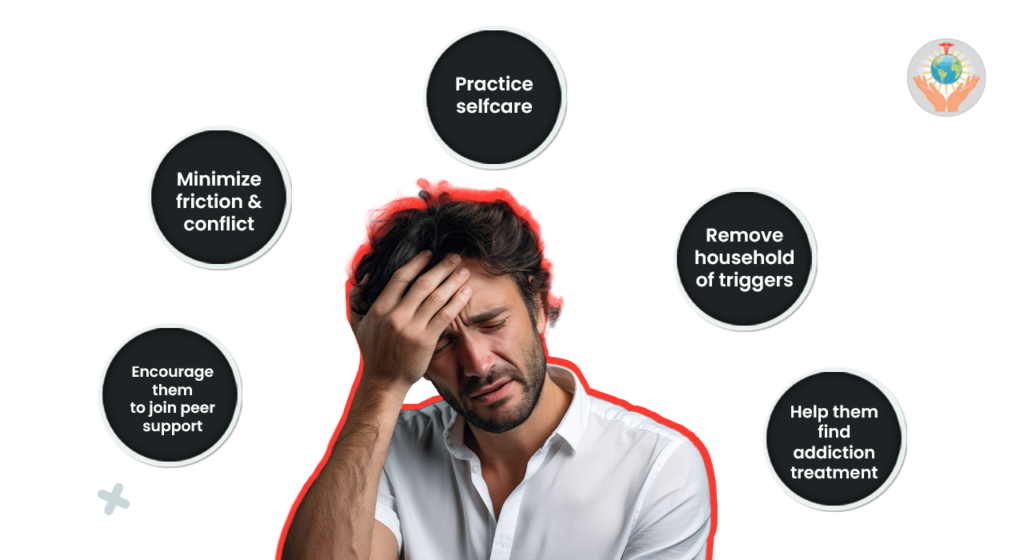Watching someone you care about battle substance use disorder can create an overwhelming experience. The situation can leave you feeling powerless and bewildered about how to give effective support. Watching someone you care about endure addiction affects partners, friends, siblings and children as one of the hardest experiences in life.

At International Family Medicine & Urgent Care in Indianapolis we acknowledge the emotional distress addiction causes families while recognizing the power of support during recovery. This resource provides research-supported methods that will guide you through this challenging period as you learn to support your loved one’s recovery effectively.
1. Understand Addiction as a Disease
Educating yourself about substance use and addiction stands as a crucial initial action. Addiction represents a chronic brain disease rather than a moral failing or simple lack of self-control. By learning about addiction you develop greater compassion and patience which helps you support your loved one.
What to Learn:
- The difference between physical dependence and addiction
- How substances affect the brain and behavior
- Withdrawal symptoms explain why quitting substances requires support.
- Mental health plays a significant role in how individuals use substances.
Helpful Tip: Access reliable substance use information and recovery resources from trusted organizations such as SAMHSA and NIH.
2. Practice Empathy and Active Listening
The words you choose to use when speaking with someone who struggles with substance use are very important. They may already feel judged or ashamed. Concentrate on active listening rather than giving criticism or tough love when communicating with someone.

Try saying:
“I’m here for you, no matter what.”
Understanding your experience is important to me.
“You’re not alone. We’ll find a way together.”
Steer clear from negative labels such as “addict” and avoid statements like “You just need to stop.” Instead focus on supporting their feelings and maintain open communication for future discussions.
3. Encourage Professional Help – But Don’t Force It
You can’t force someone to get help. Recovery has to be their decision. You can support treatment by offering gentle encouragement and providing resources when they feel prepared.
Support them in finding nearby treatment alternatives if they express interest. International Family Medicine & Urgent Care provides Suboxone outpatient programs for opioid addiction patients that combine medical treatment and counseling to create an evidence-based recovery method.

What to Say:
Would it be alright with you to speak with a doctor about your current emotions?
- A nearby clinic provides private healthcare with a respectful approach.
- I’ll accompany you if having me there makes you feel more at ease.
4. Don’t Ignore Your Own Needs
Caring for an individual who struggles with addiction creates emotional exhaustion. You may feel guilt, frustration, or anxiety. Self-care remains crucial because you cannot share anything when your own cup is empty.
What You Can Do:
- Set boundaries. You don’t have to tolerate harmful behavior.
- Look for family support groups similar to Al-Anon to help you cope.
- Engage in therapy sessions to maintain your personal mental health.
- Rest and recharge to maintain your health because your well-being is important.
Supporting others does not require giving up your personal stability. When you practice self-care you become a positive role model while boosting your capacity to support others.
5. Learn the Warning Signs of a Crisis
Addiction can reach a critical point that necessitates urgent intervention. Recognizing warning signs allows you to determine when emergency medical attention is necessary.
Signs to Watch For:
- Severe mood swings or aggression
- Hallucinations or delusional thinking
- Suicidal thoughts or actions
- Overdose symptoms (confusion, unconsciousness, slow breathing)
You should dial 911 right away if you think someone has overdosed or faces a life-threatening emergency. For professional advice during an urgent situation contact your local urgent care facility or an addiction specialist.

6. Create a Trigger-Free Environment
Assist your loved one in their recovery journey by transforming their environment into a supportive space.
You Can:
- Remove alcohol or drugs from your home
- Avoid parties or places that involve substances
- Promote beneficial activities such as physical workouts, food preparation sessions, and yoga classes
- Support new hobbies and positive distractions
- Modifications to the home environment can lead to significant improvements in recovery outcomes.
7. Celebrate Small Wins
Recovery progresses through various highs and lows rather than following a direct path. You will face difficult days and encounter setbacks during your journey. Recognizing all achievements matters because celebrating progress regardless of size helps maintain motivation during recovery.
Examples:
- 1 week without use
- Attending a support meeting
- Going to a therapy session
- Talking honestly about feelings
- Show appreciation for their hard work.
- Positive reinforcement builds motivation.

8. Understand Relapse Is Not Failure
Experiencing a relapse can be disheartening but it happens frequently during recovery. Many recovery journeys include relapses as part of their process. Continue supporting your loved one during their relapse instead of giving up on them. Prioritize planning future actions instead of analyzing past mistakes.
After a Relapse:
- Stay calm and supportive
- Help them reconnect with their treatment provider
- Remind them of their progress and potential
- Revisit triggers and coping strategies
In our treatment approach at IFMUC, we respond to relapse by providing renewed support instead of judging the situation. Each setback provides an opportunity to acquire new knowledge and build resilience.

9. Be a Bridge to Care
Your help stands as the key factor that transforms silence into meaningful action.
Guide your loved one to professional assistance when they show readiness for help.
The International Family Medicine & Urgent Care center in Indianapolis provides:
- Suboxone outpatient treatment for opioid use
- Mental health counseling to address co-occurring conditions
- Primary care and medical support
- Multilingual staff to ensure clarity and comfort
We offer compassionate and confidential services tailored to meet each person’s unique requirements.
📞 Call Us: (317) 731-5887
📍 Location: 3806 W 86th St, Indianapolis, IN

